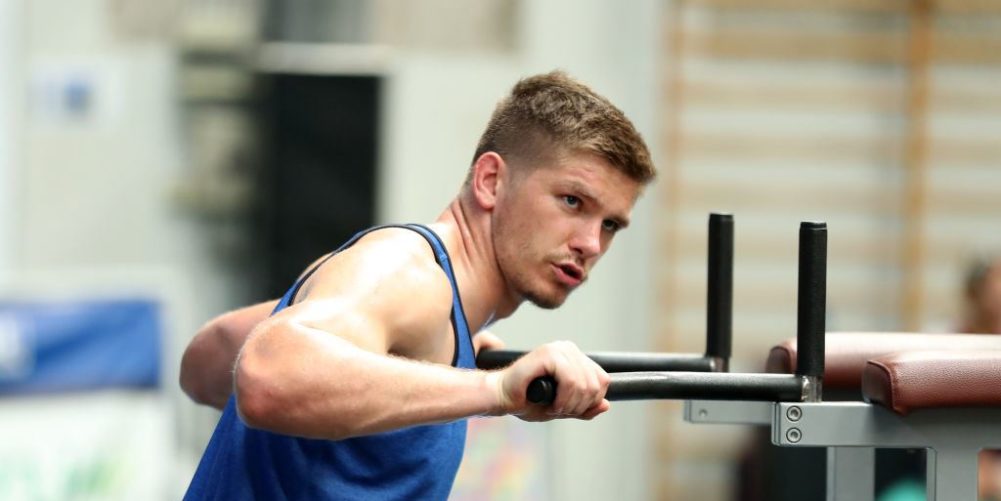Working out is a complex activity, but it’s not the sole aspect you need to focus on. In this article, we’ll go through things you should do after working out for maximum efficiency and health benefits.
Static Stretching
Many trainers recommended stretching right after cooling down. Sometimes, both are done at the same time. Specifically, it’s suggested to utilize static stretching to cool down. Static stretching is a challenging yet convenient stretching position held for 10-30 seconds.
Static stretching is known for its effectivity in improving one’s overall flexibility. Apart from refining range of motion, here are other reasons why you need to perform static stretching after working out:
- Decreases injury risks
- Increases nutrient supply to the joints
- Increases blood flow
- Improves recovery
- Increases movement efficiency
- Decreases lower back pain risks
- Decreases muscular tension
- Improves neuromuscular coordination
- Improves postural awareness and balance
- Relieves cramps
Post-Workout Meals: Protein & Carbs
Eat meals that contain both protein and carbohydrates within two hours of your workout sessions. After working out, our muscles will become sore, and our muscle glycogen—the storage form of carbohydrates—will deplete, making you feel tired. That’s why it’s necessary to eat something, especially food with adequate protein and carbohydrates.
Having protein and carbohydrates are needed for muscle recovery and refueling. Protein is a known essential factor in muscle recovery. In addition to what protein does for the muscles, carbohydrates increase insulin concentration and plasma glucose, and allow one’s body to resynthesize glycogen at a higher rate.
You’ll either suffer from fatigue or get disorientation from low blood sugar if you don’t eat enough protein and carbs after working out. Not having enough of these two would lead to injuries, too.
It’s no hassle to make post-workout meals. Here are some of the post-workout food choices that are both rich in protein and have enough carbohydrates your body needs:
- Yogurt and fruit
- Post-workout recovery smoothie
- Peanut butter sandwich
- Low-fat chocolate milk and pretzels
- Turkey on whole-grain bread with vegetables
Also, taking whey protein powders is an inexpensive and convenient source of protein (source: Barbend.com). Nowadays, protein shakes are considered one of the essential post-workout indulgences that you should have.
Rehydrate
Drink enough fluids after working out to prevent dehydration. Often, the amount of sweat poured during exercise is higher than the total amount of fluids heading in. Hence, people who sweat more need to drink more water.
Most of the time, we tend to drink water by how our body feels. However, to get a certain amount of your water needs, start by weighing yourself before and after you exercise. After working out, drink six fl. oz or 473.176 mL of fluid every pound you have lost.
According to Dr. Christopher Hogrefe, a sports medicine doctor, you’re properly hydrated when you lose +/- 1.5% bodyweight, while you’re dehydrated if you lose 1.5–4.5% bodyweight. You’ll be severely dehydrated when you’ll more than 5% body weight.
Further, the American College of Sports Medicine suggested the following drinking tips to stay well-hydrated before, while and after exercising:
- Before workout (two or three hours before the session) – drink around 473 to 710ml or about 2 to 3 cups of water
- During workout (every 15 to 20 minutes) – drink around 118 to 237 ml or about 1/2 to 1 cup of water, but adjust the amounts depending on your body size and current weather
- After workout – drink around 473 to 710 ml or 2 to 3 cups of water
Water lubricates joints, regulates body temperature, and transports nutrients in your body. Not having adequate water means your body can’t perform at its best. In general, it’s the best way to replenish lost fluids.
However, you should consume sports and energy drinks if you’re working for more than an hour. This beverage helps in maintaining one’s body electrolyte balance. It’s called energy drink for a reason, as well. It contains carbohydrates so it would give you a bit more energy after exercising.
Take a Shower
There’s no strong evidence about how effective taking a cool shower after exercising would give you a faster muscle recovery yet. A few researches claimed that cold water therapy has contributions to the perception of recovery, though.
This might be related to the idea that after exercising, we tend to overheat. Taking a cool shower would turn our bodies to get back to the baseline, making us feel better psychologically or mentally. Many athletes also gave testimonies that cold shower relieves their muscle sores.
You can try taking a cold bath after working out, and see whether it’s the same in your case. You don’t need to bathe in a tub full of ice cubes like what other pros do. A shower in a lower temperature will do.























